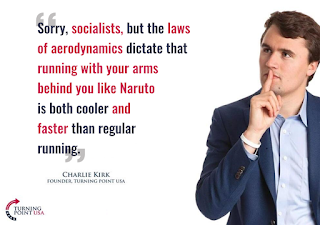Chapter 1 Chapter 2 Chapter 3 Chapter 4 Chapter 5 Chapter 6
Chapter 7 Chapter 8 Chapter 9 Chapter 10 Chapter 11
Chapter 7 Chapter 8 Chapter 9 Chapter 10 Chapter 11
On top of the buried corpse of communism, our leaders built a new world order predicated on liberty. To buy and sell, to speak our minds, to do as we please. Unshackled from the dead totalitarianisms of the past, we were promised material abundance and security here, at the end of history.
Unfortunately for this brave new world order, spectres cannot be buried and history cannot end. In the frenzy of buying and selling, a connected globe scarcely considered that our own lives were the product. So the liberty to speak one's mind became the liberty to preach white supremacy; politics became a commodity expressed by purchasing commodities; millions were slaughtered in the name of freedom, and everything has become steadily worse for most of the people on this planet.
We have been here before, at the so-called "end of history," many times. It has been noted by everyone from professors to pub-crawling pundits that Trump is vaguely reminiscent of Hitler. One does not have to be a Putin-obsessed liberal to notice the same sorts of people supported both, and for the same basic reasons.
But the question lingers: why 1933 and why 2016? What changed in our society, in German society, to permit these miscarriages of democracy?
The answer is inequalities of wealth, caused by capitalism and made salient by an economic crisis. Even the arch-capitalist Winston Churchill, genocidal murderer of millions in India, conceded that capitalism creates inequality when he referred to its "unequal sharing of blessings" (Churchill, House of Commons, 22 October 1945). A society can start out mostly equal and, through the application of free market capitalism over decades, become highly unequal. By the end of this process, that society will find itself in a period commonly referred to as "late-stage capitalism" in modern parlance, or "finance capitalism" as Lenin called it, where the market services the worst impulses and people among us, where desperate people do desperate things, and ideologies we believed dead and buried rise up from the grave to walk among us again.
This book is dedicated to the future of two such ideologies: the once-buried socialism, and the communism believed to lie beyond it. They retain the stench of the grave for many, but even those who hate that stench ought to cheer them on, because the other ambulatory corpse is Hitler's.
We will look at the operations of capitalism, the structure of society, the history of these things in context, and finally what is to be done to fix society in our present day. We will explore these things with all the depth of academia, but with all the simplicity of the guileless working class. This book was written to be understood rather than to impress, to be a call to action rather than ivory-tower scribblings. Nonetheless, I expect it to withstand all the rigors of academia, as it was academia that forged my outlook. (That doesn't mean that I don't expect some Chuckles Kirk-level figure to "totally debunk" everything in here, because if this work gets famous enough, someone will inevitably try to grift themselves a buck fooling you and doing it.) Yet, let nobody set this work aside because they think it does not belong to them; those who have the least have the greatest claim to these ideas.
And lest anyone be deterred by the imaginary totalitarianism contained in the words "socialism" or "communism," the very next thing this book will teach you is how to see and think for yourself.
Continue on to Chapter 1





No comments:
Post a Comment
Spam and arrogant posts get deleted. Keep it comradely, keep it useful. Comments on week-old posts must be approved.